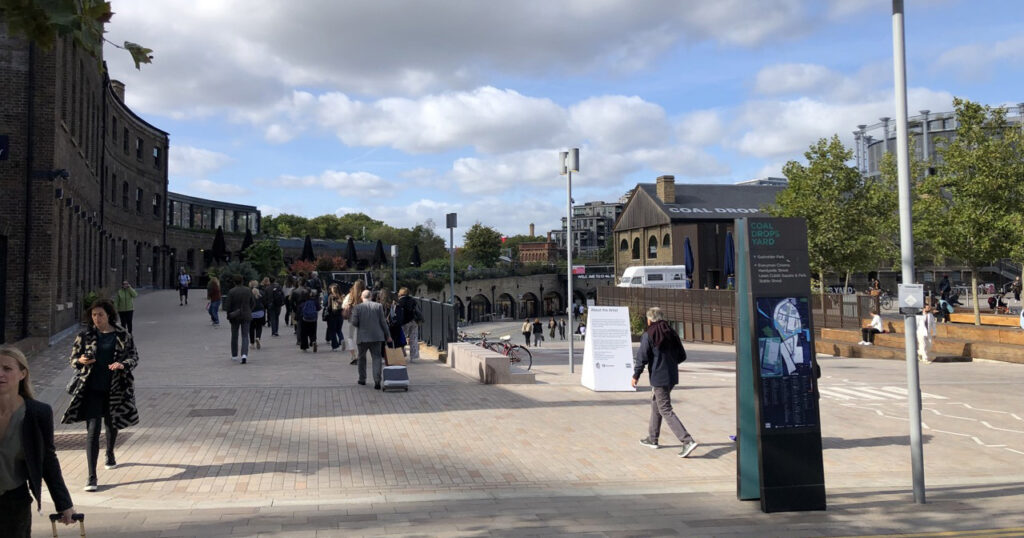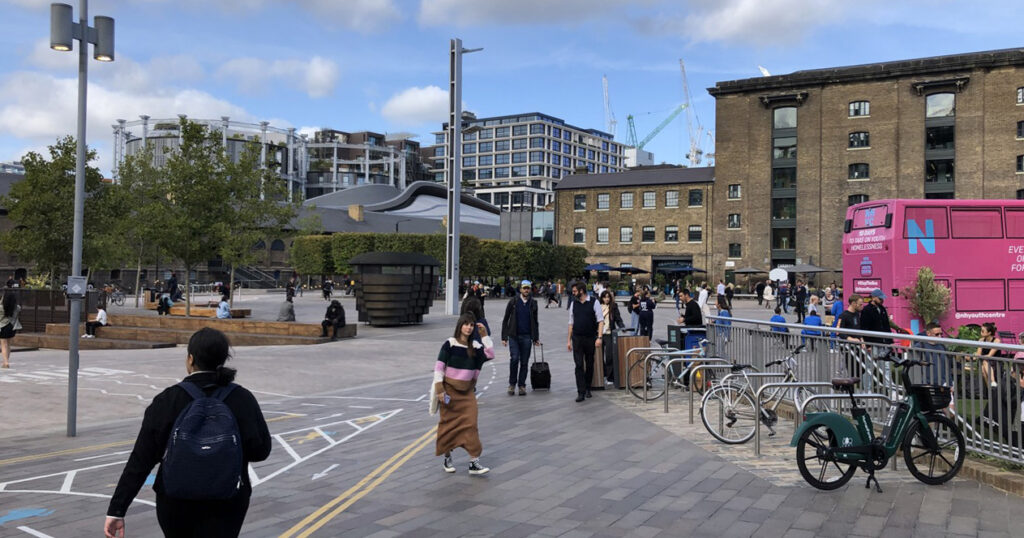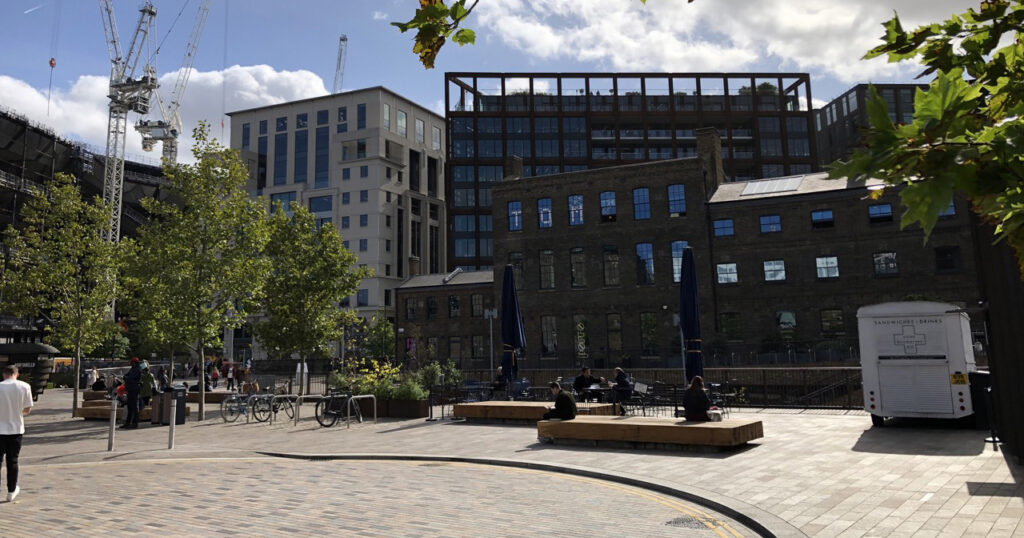On a recent trip to London the amazing Karen Chu invited me to join her outside the office for lunch. We agreed to meet up at Kings Cross so she could show me around the area a little bit. I only knew Kings Cross from Harry Potter, so I was eager to see the sights. (Needless to say, Platform 9 3/4 is just a Harry Potter themed store… but maybe that’s because I’m just a Muggle and couldn’t get on to the real Platform 9 3/4.) After meeting up she took me on a walking tour of the area. From that tour we both learned some unexpected takeaways regarding team culture and the evolution of a business.
First, a little history. The area of Kings Cross sits next to an canal that allowed the area to became an important shipping hub. Large brick warehouses were built along the canal to facilitate the trade of goods. But over the years, as the canal-shipping industry declined, a seedy underbelly developed and eventually exploded out into the open. Any number of vices were readily available in the area. Those NOT looking for said vices focused on transiting through the area as quickly as possible. But then a few years ago, working with the city, a number of large developers came in and bought up large parcels of land around the train station. They set about revamping the neighborhood, pushing out the filth, and attracting the likes of Samsung, Google, restaurants, and retailers. Today, the area is a clean, bustling, and thriving area. You’d never know that just a few years ago it was the “not-so-nice” part of town.

What’s fascinating is that the developers did not simply come in, bulldoze everything, and start anew. They largely kept the brick warehouses intact and incorporated them into their designs. So yes, there are plenty of modern, glass-clad buildings for the Googlers and such. But the brick warehouses remain and are an integral part of the area.
This sparked a conversation about the evolutionary path of a business. As many businesses grow from start up, founder/family led organizations, they must go through some inevitable growing pains. All the things that made them successful in the first place won’t necessarily make them successful as a larger company. But that doesn’t mean everything should be bulldozed to make way for the new. The Kings Cross area is a perfect lesson in retaining the strength and the heart of a business, while embracing the new.

A perfect case study is Interactive Workshops, which has not been immune to these growing pains. As the team has grown from one person in his attic, to two people around a kitchen table, to four people meeting up occasionally when they weren’t on the road, to eight, to twelve in their own rented office, to sixteen, down to ten, back up to sixteen, then to twenty with two owned offices, now to thirty people spread across two continents, the team has had to navigate the dilemmas of what to preserve, what to leave in the past, and what to evolve into.
When talking about a company’s evolutionary path, no one single solution fits all. But at IW, the team has relentlessly focused on what it means to be “IW.” Bucking conventional wisdom, they have not relied on visions, or mission statements. Don’t be mistaken: goals are set and rigorously tracked. But more effort is put into values and “being” rather than “doing.” Process can (and should) evolve to accommodate bigger teams and different structures. It’s never easy for leaders and teams to have to introduce the necessary managerial maturity required to become more than a bunch of mates building a life-style driven business. But that material maturity is just that: necessary. It’s the glass-clad skyscraper in a neighborhood of brick warehouses.

But those brick warehouses are what give the neighborhood its charm. Its appeal. Its distinction. We’ve all been in cities that were almost indistinguishable from any other city because too much of the original charm of the city was allowed to be thrown away in the name of progress and modernity.
So as teams and organizations grow and evolve, remember Kings Cross. There are three paths a team or organizations can follow:
1. Fail to sufficiently evolve at all and be left to history,
2. Evolve too much, loose the distinctive nature of the business, and become less competitive as the unique value proposition is lost, or—
3. Clearly identify the aspects of the business and team that make it unique, and rigorously defend those as processes and practices evolve.
